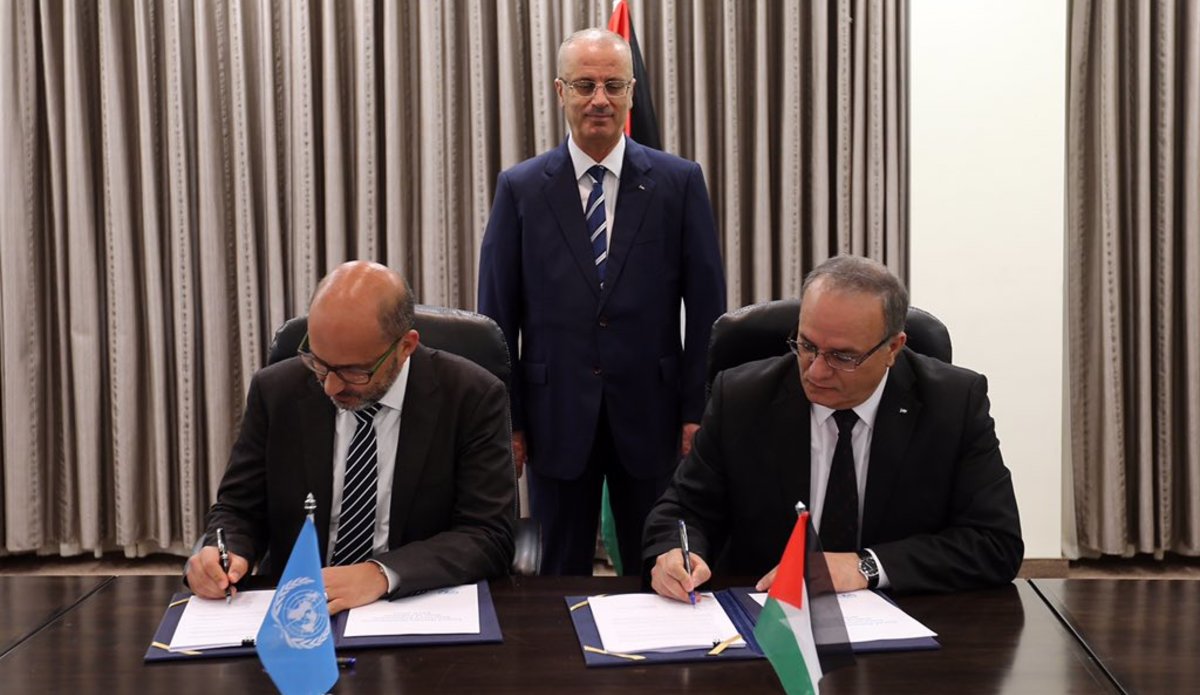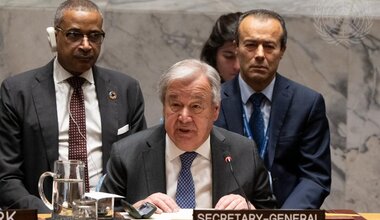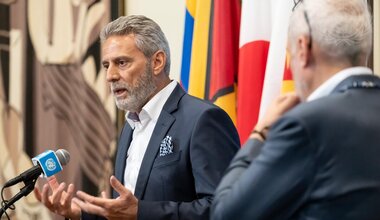The United Nations and the Government of Palestine sign new UN development strategy for 2018-2022
In the presence of H.E. Prime Minister Rami Al Hamdallah, and representatives of various ministries, and United Nations Agencies, the United Nations and the Government of Palestine today signed the second United Nations Development Assistance Framework (UNDAF) for the occupied Palestinian territory, covering the period 2018-2022.
The UNDAF lays-out the common plans and strategies of all 21 agencies of the UN Development Group working in oPt over the coming five years. The overarching goal of the US$1.3 billion 5-year strategy is “to enhance development prospects for the people of Palestine, by advancing Palestinian statehood, transparent and effective institutions, and by addressing key drivers of vulnerability”. In order to achieve this goal, the UNDAF is configured around projects in four core programming areas: (1) Supporting Palestine’s path to independence; (2) Supporting access to accountable, effective and responsive democratic governance; (3) Supporting sustainable and inclusive economic development; and (4) Promoting social development and protection.
The new UNDAF for oPt was inspired by the 17 Sustainable Development Goals and Agenda 2030, unanimously adopted by all 193 Member States of the UN at the General Assembly in September 2015, which ushered-in a world-wide effort to promote development that “leaves no-one behind”. A detailed analysis of various disadvantaged and especially-vulnerability groups in the oPt undertaken by the UN team, lay the foundations for the new UNDAF. The strategy is also closely aligned to the Government’s new National Policy Agenda for the period 2017 to 2022.
UN Resident Coordinator, Robert Piper, reiterated the commitment of the UN to working with the Government, civil society and other development partners, to improve the lives of all people in the oPt, especially the most marginalized and vulnerable, and to help achieve the Sustainable Development Goals here; “The UNDAF reflects a shared commitment by the UN and the Government to work hand-in-hand to address some of the most sensitive and intractable development challenges faced by the 4.8 million residents of the occupied Palestinian territory”. With the signing of the UNDAF today, he noted, “our partnership to address national development priorities moves to the next level”.
The ceremony was held at the Prime Minister’s Office in Ramallah and was attended by H.E. Prime Minister Rami Al Hamdallah; H.E. Ibrahim Al-Shaer, Minister of Social Development, the UN Resident Coordinator, Robert Piper, and the heads of UN agencies resident in oPt.
The UN agencies which are signatory to the new UN Development Assistance Framework are the following: Food and Agriculture Organization of the United Nations, International Labour Organization, International Trade Centre, United Nations Office for the Coordination of Humanitarian Affairs, Office of the High Commissioner of Human Rights, United Nations Conference on Trade and Development, United Nations Development Programme, United Nations Environment Programme, United Nations Educational, Scientific and Cultural Organization, United Nations Population Fund, United Nations Habitat, United Nations Children’s Fund, United Nations Office on Drugs and Crime, United Nations Office for Project Services, United Nations Relief and Works Agency for Palestine Refugees in the Near East, United Nations Volunteers, United Nations Women, World Food Programme, World Health Organization, and United Nations Industrial Development Organization. Implementation of the strategy will begin on 1 January 2018.
 UN
UN





